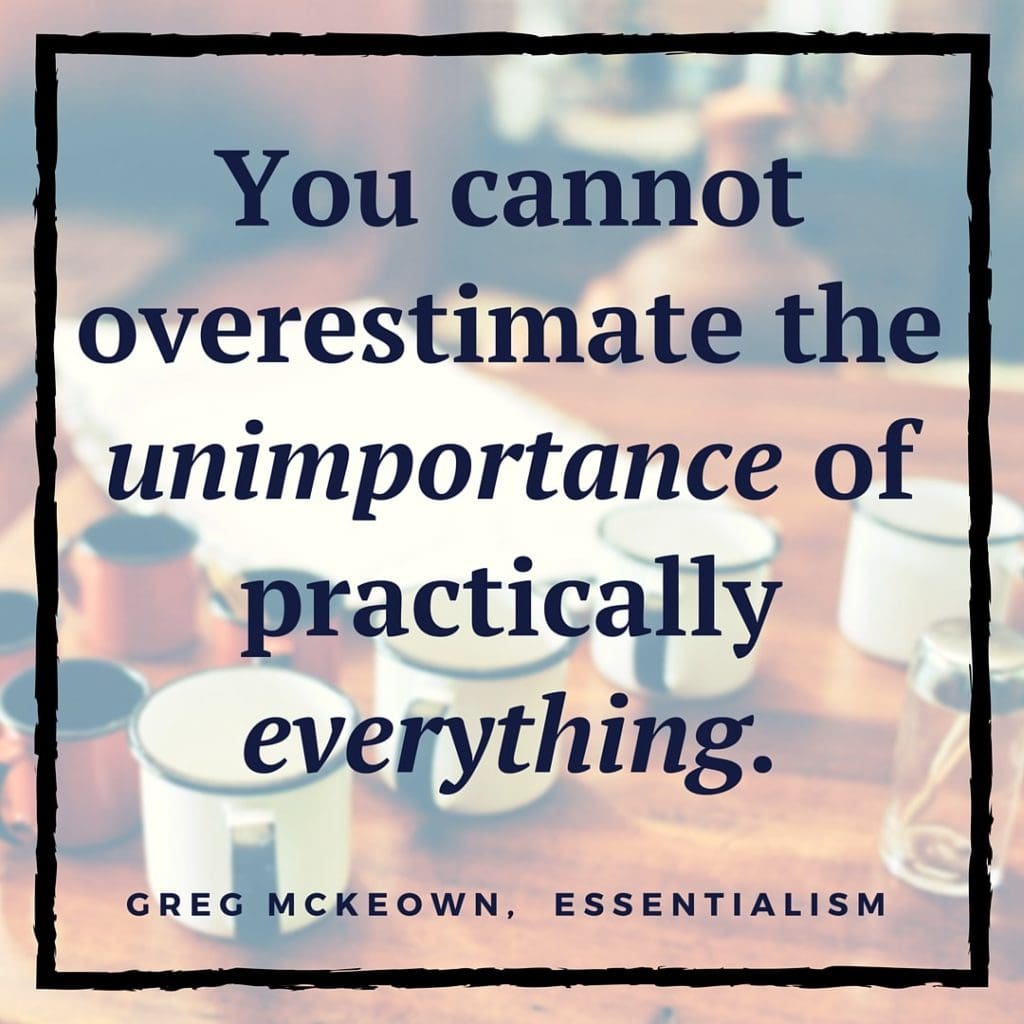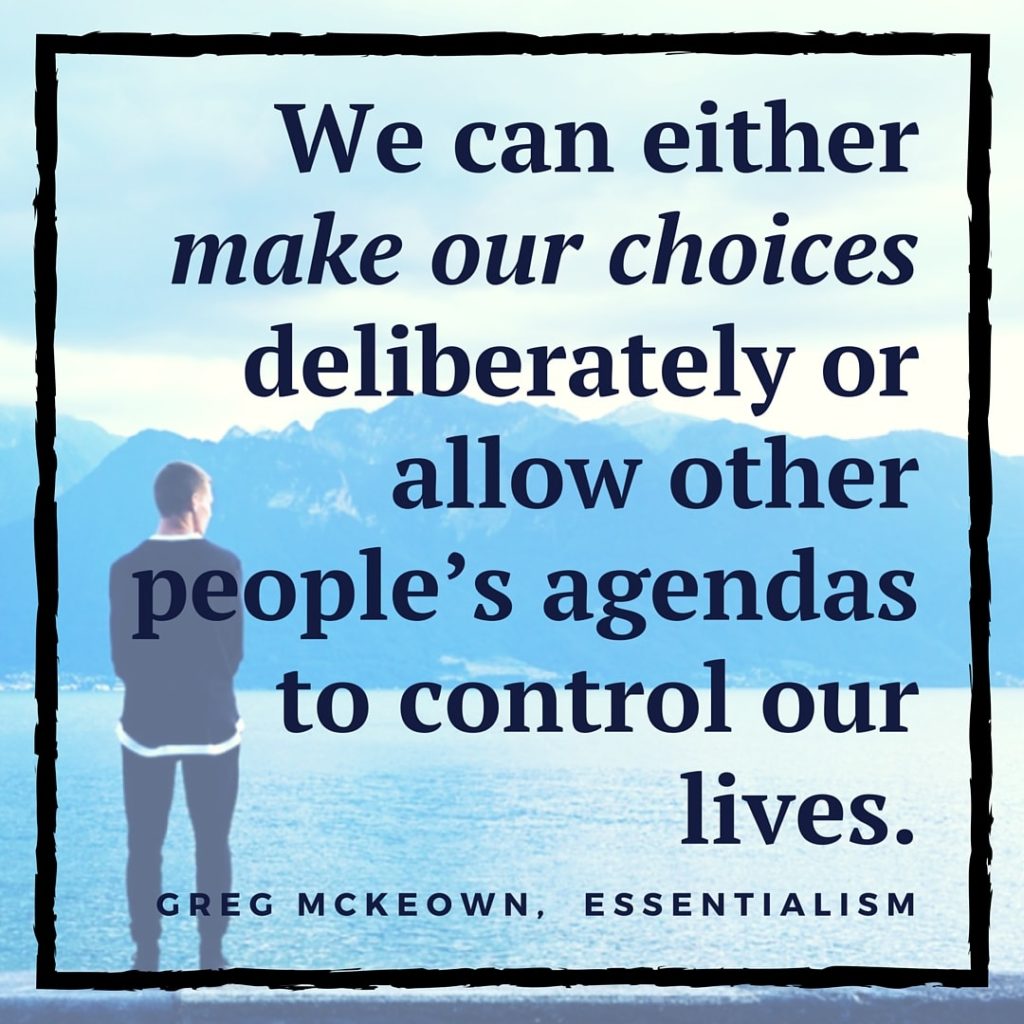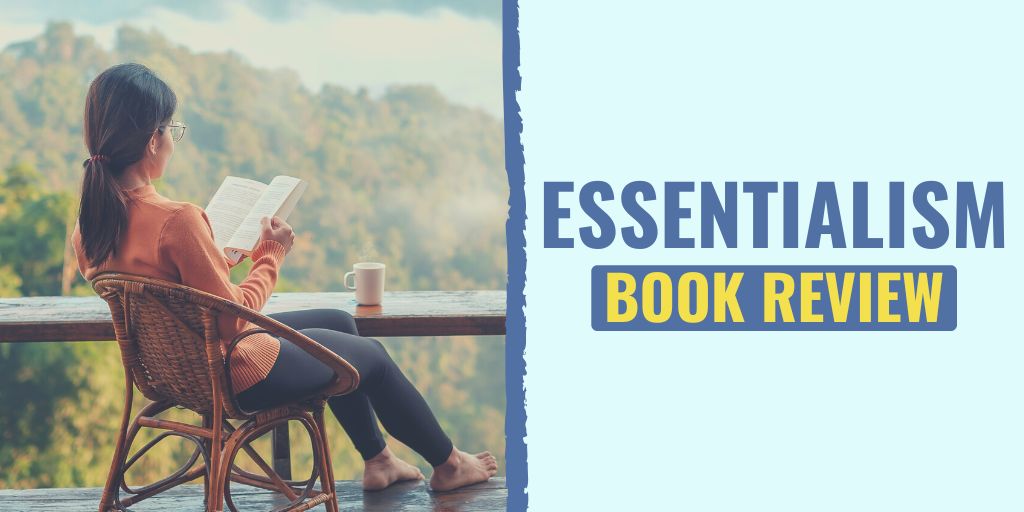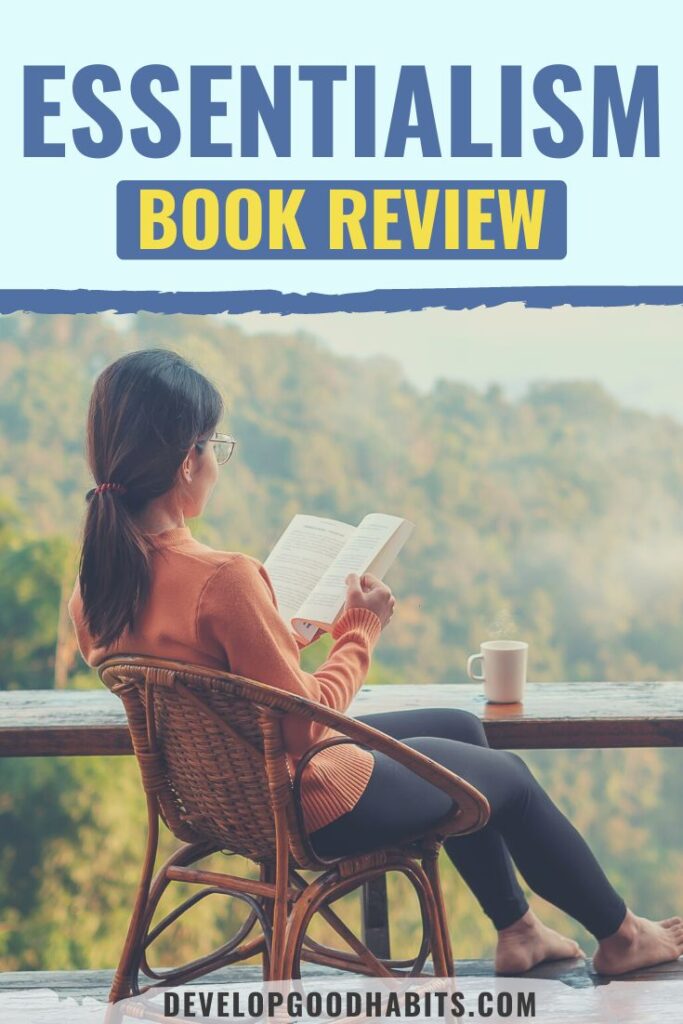Do you feel pressure to accomplish all your goals? Feel spread thin, with too much on your to-do list?
Do you feel that you are not being as productive as you should be? Have trouble completing all the tasks you assign yourself?
Feel “busy” but not “productive”?
If these problems seem familiar to you, you should keep reading this book review of Greg McKeown’s Essentialism: the Disciplined Pursuit of Less to find out more about only doing the things that matter, and understanding what comprises those “essential” actions.
If you don’t prioritize your life, someone else will.
The best analogy for the concept of “essentialism” is minimalism.
In a minimalist lifestyle, you pare down your “stuff” to the things that really matter to create a better life.
Essentialism is the same; except you are paring down the things you do and the actions you take.
Reading Essentialism will help you discover the power focusing on the essential.
You do less, but you do it better.
…And you regain the control that may have been missing from your life.
Is Essentialism Based on Cutting Edge Science and Psychology?
Essentialism is not based on the “latest-and-greatest” science and psychology. It is based on older “time-tested” ideas.
Most concepts of the book have been discussed by many cognitive scientists, psychologists, philosophers, and time management experts for the last few years.
Most of the information and experiments the conclusions are drawn from are relatively new, but you may have heard of some of these concepts before.
McKeown’s first concept, in fact, stretches all the way back to Socrates. As the book progresses he brings up points from many of the great productivity and time management experts. (See a list of some of these experts and their own productivity books at near the end of the post)
Why Less is Actually More

Life these days is incredibly busy. To keep up with your competition you need fill your schedule to breaking, learn new skills, be a better spouse/parent, stay physically fit and educate yourself on all aspects of your job to be the subject matter expert.
The problem is simple: we just can’t do all of that.
We can’t be experts in every aspect of lives. There is just too much to do.
Kids these days may get awards for everything they do. This is great for self confidence, but as adults we have to learn to play to our strengths and handle the essential things. Let the trivia of life slide away. We need to focus on the things that are essential to our happiness, well-being and success.
Essentialism helps the reader to discover the priorities in their lives.
Essentialism Book Review: The 4 Major Principles of Essentialism
The basic concepts of Essentialism are not that difficult.
Just like minimalism can be boiled down to “Get rid of stuff you don’t need> Rinse> Repeat” So can Essentialism. However, it is a little bit more complicated than this oversimplification.
Let's review the major steps of essentialism, step-by-step.
1. Do less; do it better.
Rather than rushing through tasks trying to get everything done, focus on fewer tasks, but take the time to do these things really well. This deliberate work will allow you to truly become an expert in the areas that matter, rather than just trying to get the task done.
2. Do not do it all.
Rather than trying to do everything, you need to find the area you excel and do that and only that. This laser focus on your strengths will also work to make you a true master, rather than the dreaded, “Jack of all trades”.

3. Question yourself constantly and update plans.
Any good plan will have a loop in it.
You may make mistakes. You may find you feel something is essential when it is not, or vice versa.
By constantly questioning yourself about what is truly essential, you begin to narrow your focus. If a task proves to be non-vital, you can then downgrade the task.
If something you originally thought was unimportant shows itself to be essential, you can make it an essential task.
This Essentialism principle is all about being flexible.
4. Make sure the changes are acted upon.
This is a weak part of any plan. Many people make great plans, then do not put them in effect. Actually acting on your Essentialism plan, and having the skills to do so is an important part of Essentialism.
These concepts sound easy. But putting them into effect is actually harder than it sounds.
What “Essentialism” Teaches Us
If you need more ideas on how to identify your essentials, take a few minutes to watch this video about Warren Buffett's 5-25 rule for your goal setting efforts:
Essentialism Suggested Further Readings
It was mentioned earlier in this Essentialism book review that McKeown based many of his ideas on some of the best personal development books ever written.
Here are some of the major books that McKeown uses as reference sources in his book, in case you want to read more about these topics.
To be honest, while I rate this book a solid “B”, and certainly worth reading to pare your actions down to the important ones. The books below are all easy “A”s as they transend from “interesting ideas” to “must read” books.
- THINKING, FAST AND SLOW by Daniel Kahneman
- FLOW by Mihaly Csikszentmihalyi
- DRIVE by Daniel Pink
- THE POWER OF HABIT by Charles Duhigg (review here)
- THE 7 HABITS OF HIGHLY EFFECTIVE PEOPLE by Stephen R. Covey
For more books that can help change your life for the better, check our book roundups: 250+ of the Best Self Help Books (in 22 Categories)
Final Thoughts on Essentialism
Essentialism may not be right for everyone. If you feel you are productive and accomplishing all the things you need to accomplish. This book may not have much to teach you.
If you are completely on track for reaching your goals. You might already know most of what this book teaches. Many of the basic topics have been discussed in other books.
The important final takeaway from Essentialism is that few of our daily activities are actually important to our day-to-day well-being and success.
It is easy to become bogged down with a lot of things that seem important, but really do not matter.
It is important to take the time to look at our tasks carefully and decide on the things that truly matter. The things that are ESSENTIAL.



